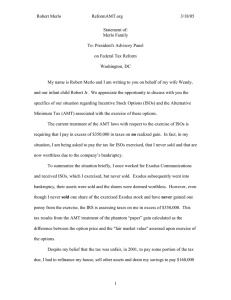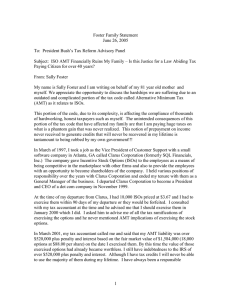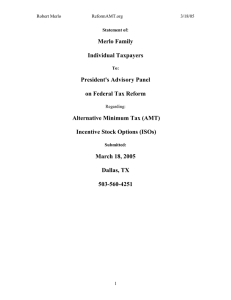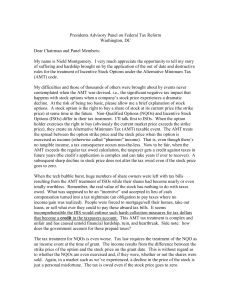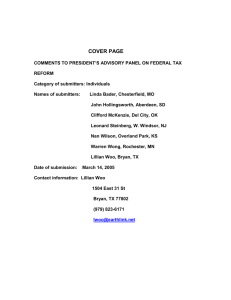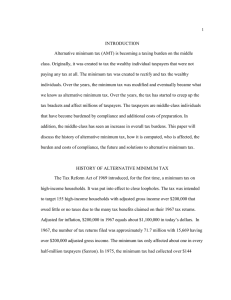Alternative Minimum Tax effects spreading
advertisement
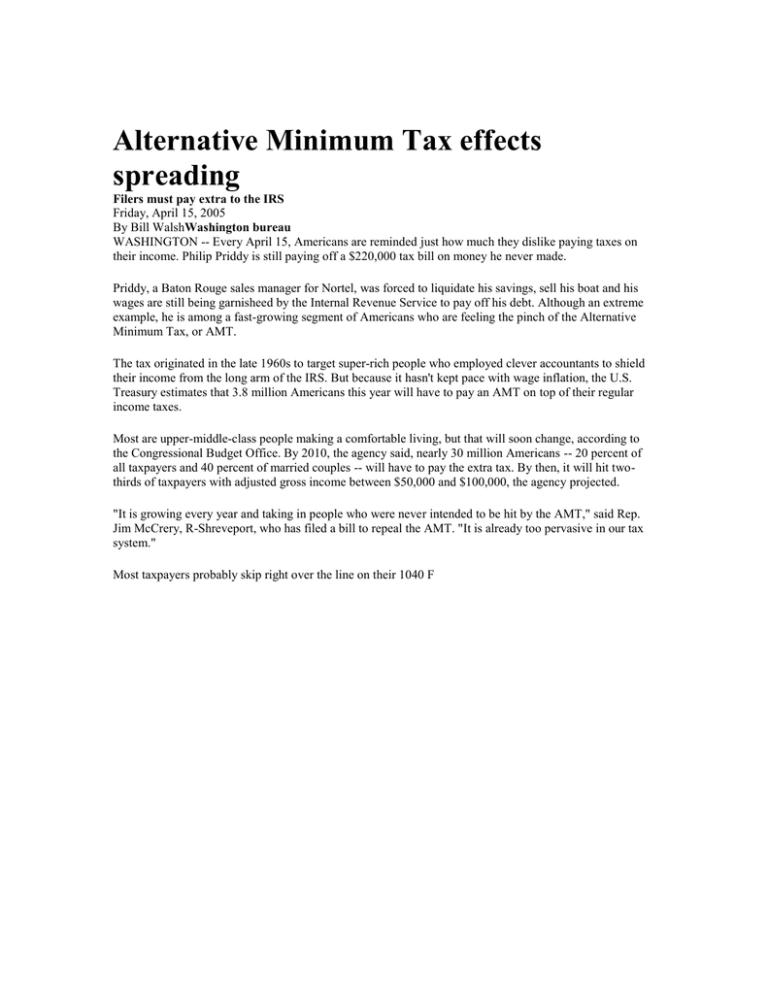
Alternative Minimum Tax effects spreading Filers must pay extra to the IRS Friday, April 15, 2005 By Bill WalshWashington bureau WASHINGTON -- Every April 15, Americans are reminded just how much they dislike paying taxes on their income. Philip Priddy is still paying off a $220,000 tax bill on money he never made. Priddy, a Baton Rouge sales manager for Nortel, was forced to liquidate his savings, sell his boat and his wages are still being garnisheed by the Internal Revenue Service to pay off his debt. Although an extreme example, he is among a fast-growing segment of Americans who are feeling the pinch of the Alternative Minimum Tax, or AMT. The tax originated in the late 1960s to target super-rich people who employed clever accountants to shield their income from the long arm of the IRS. But because it hasn't kept pace with wage inflation, the U.S. Treasury estimates that 3.8 million Americans this year will have to pay an AMT on top of their regular income taxes. Most are upper-middle-class people making a comfortable living, but that will soon change, according to the Congressional Budget Office. By 2010, the agency said, nearly 30 million Americans -- 20 percent of all taxpayers and 40 percent of married couples -- will have to pay the extra tax. By then, it will hit twothirds of taxpayers with adjusted gross income between $50,000 and $100,000, the agency projected. "It is growing every year and taking in people who were never intended to be hit by the AMT," said Rep. Jim McCrery, R-Shreveport, who has filed a bill to repeal the AMT. "It is already too pervasive in our tax system." Most taxpayers probably skip right over the line on their 1040 F
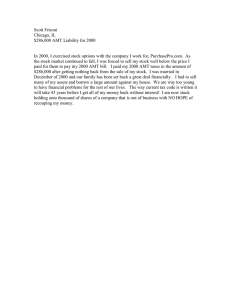
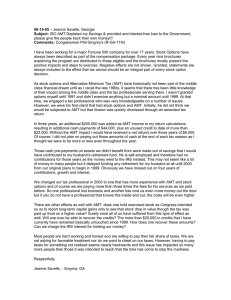
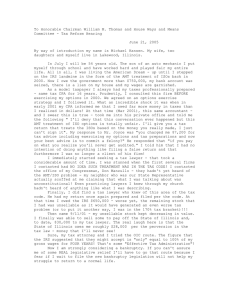
![-----Original Message----- [mailto:] Sent: Friday, March 18, 2005 3:05 PM To:](http://s2.studylib.net/store/data/015588489_1-78da7db094897020314738c2823881f3-300x300.png)
